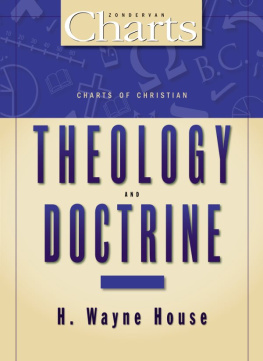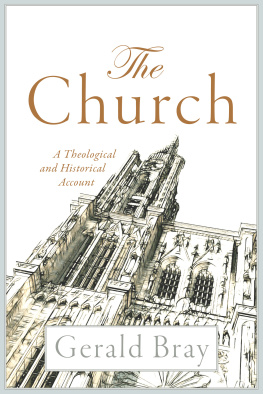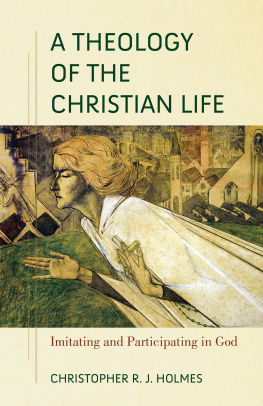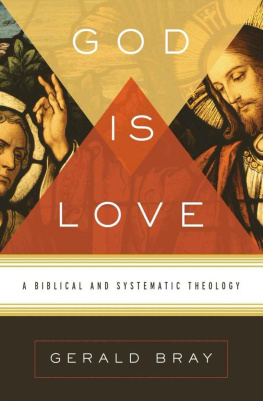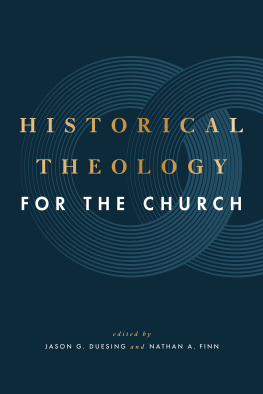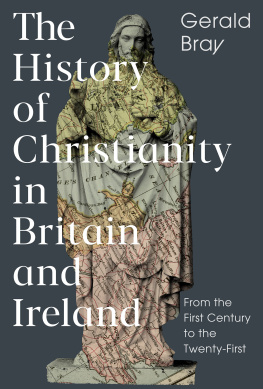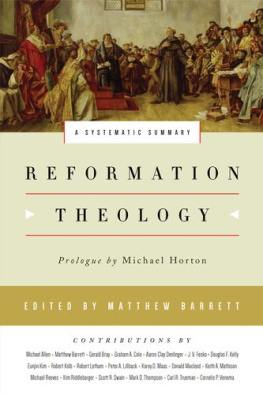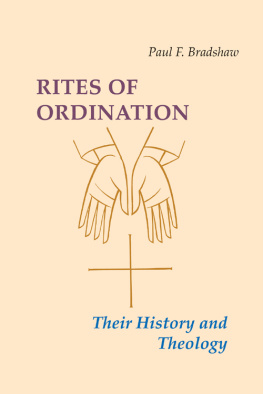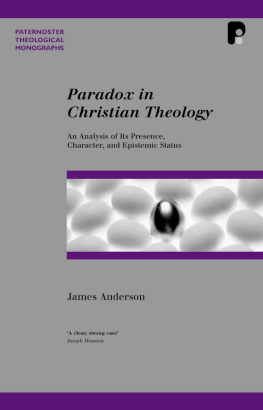Thank you for downloading this Crossway book.
Sign-up for the Crossway Newsletter for updates on special offers, new resources, and exciting global ministry initiatives:
Crossway Newsletter
Or, if you prefer, we would love to connect with you online:
Facebook
Twitter
Google +
A remarkably learned, wise, and substantial study of the history of Christian doctrine. Written by an Anglican who is also an evangelical, this volume interacts with the entire scope of Christian theology in all of its major ecclesial trajectories. This book will stand the test of timein the best tradition of Newman, Harnack, and Pelikan.
Timothy George, Founding Dean, Beeson Divinity School; General Editor, Reformation Commentary on Scripture
Despite its breadth, one that covers the centuries, God Has Spoken also plumbs the depths of numerous doctrines throughout the churchs last two thousand years. This volume is an excellent resource for students, pastors, and scholars, and for anyone who wants to study the organic development of the churchs theology. This will prove to be an invaluable resource for generations to come.
J. V. Fesko, Academic Dean and Professor of Systematic and Historical Theology, Westminster Seminary California
Under Gerald Brays able pen, the history of Christian thought comes to life. Brays Trinitarian way of framing the story of Christian doctrine is a creative and helpful contribution to the discipline. His familiarity with the sources from every branch of the Christian tree is refreshingand enviable! His evenhanded narrativemixed with periodic personal commentary that is often witty, always insightful, and occasionally provocativemakes this book a delight to read. God Has Spoken will be essential reading for scholars and students for years to come. Highly recommended.
Nathan A. Finn, Associate Professor of Historical Theology and Baptist Studies, Southeastern Baptist Theological Seminary
GOD
HAS
SPOKEN
A HISTORY OF CHRISTIAN THEOLOGY
GERALD BRAY

God Has Spoken: A History of Christian Theology
Copyright 2014 by Gerald Bray
Published by Crossway
1300 Crescent Street
Wheaton, Illinois 60187
All rights reserved. No part of this publication may be reproduced, stored in a retrieval system, or transmitted in any form by any means, electronic, mechanical, photocopy, recording, or otherwise, without the prior permission of the publisher, except as provided for by USA copyright law.
Cover design: Erik Maldre
First printing 2014
Printed in the United States of America
Unless otherwise indicated, Scripture quotations are from the ESV Bible (The Holy Bible, English Standard Version), copyright 2001 by Crossway. 2011 Text Edition. Used by permission. All rights reserved.
Scripture quotations marked NASB are from The New American Standard Bible. Copyright The Lockman Foundation 1960, 1962, 1963, 1968, 1971, 1972, 1973, 1975, 1977, 1995. Used by permission.
Scripture quotations marked KJV are from the King James Version of the Bible.
All emphases in Scripture quotations have been added by the author.
Hardcover ISBN: 978-1-4335-2694-7
ePub ISBN: 978-1-4335-2697-8
PDF ISBN: 978-1-4335-2695-4
Mobipocket ISBN: 978-1-4335-2696-1
Library of Congress Cataloging-in-Publication Data
Bray, Gerald Lewis.
God has spoken : a history of Christian theology / Gerald Bray.
1 online resource
Includes bibliographical references and index.
Description based on print version record and CIP data provided by publisher; resource not viewed.
ISBN 978-1-4335-2695-4 (pdf) ISBN 978-1-4335-2696-1 (mobi) ISBN 978-1-4335-2697-8 (epub) ISBN 978-1-4335-2694-7 (hc)
1. Theology, DoctrinalHistory. I. Title.
BT21.3
230.09dc23 2014007847
Crossway is a publishing ministry of Good News Publishers.
Contents
PART ONE
The Israelite Legacy
PART TWO
The Person of the Father
PART THREE
The Work of the Father
PART FOUR
The Person of the Son
PART FIVE
The Work of the Son
PART SIX
The Person of the Holy Spirit
PART SEVEN
The Work of the Holy Spirit
PART EIGHT
One God in Three Persons
God hath spokenby his prophets,
Spoken his unchanging word,
Each from age to age proclaiming
God the One, the righteous Lord:
Mid the worlds despair and turmoil
One firm anchor holdeth fast,
God is king, his throne eternal,
God the first and God the last.
God hath spokenby Christ Jesus,
Christ, the everlasting Son,
Brightness of the Fathers glory,
With the Father ever one;
Spoken by the Word Incarnate,
God of God, ere time began,
Light of Light, to earth descending,
Man, revealing God to man.
God yet speakethby his Spirit
Speaketh to the hearts of men,
In the age-long word expounding
Gods own message, now as then;
Through the rise and fall of nations
One sure faith yet standing fast,
God abides, his word unchanging,
God the first and God the last.
George Wallace Briggs (18751959)
Until the nineteenth century, there was no such thing as the history of Christian doctrine. The doctrines themselves were contained in the creeds and confessions of the church, but how they had come into being was seldom examined in any detail. Protestants were aware that there had been developments over time, since otherwise the sixteenth-century Reformation would have been incomprehensible. If no change of any kind was possible, the Reformation should have been rejected as an innovation that was incompatible with eternally revealed truth, which is just what their Roman Catholic adversaries argued. Claiming the authority of the apostle Peter as the appointed successor of Jesus and the first bishop of Rome, the popes and their supporters assumed that what they believed and taught had come directly from the Lord himself.
The Eastern Orthodox churches had never accepted papal jurisdiction over them. On the whole, they agreed with Rome about the content of the churchs theology, but not about the nature of the authority that had defined it. To them, Rome not only claimed a power that Jesus had not given to Peter, but it had corrupted the churchs teaching in the process. This was the significance of adding the word filioque (and [from] the Son) to the Nicene Creeds statement that the Holy Spirit proceeds from the Father (John 15:26). Did the pope have the power to authorize such an addition as this without the backing of a universal (ecumenical) church council? Rome said that he did, but the East replied that he did not. Each side believed that the other had misread the Bible, in particular the words of Jesus in Matthew 16:1819:
... you are Peter, and on this rock I will build my church, and the gates of hell shall not prevail against it. I will give you the keys of the kingdom of heaven, and whatever you bind on earth shall be bound in heaven, and whatever you loose on earth shall be loosed in heaven.


